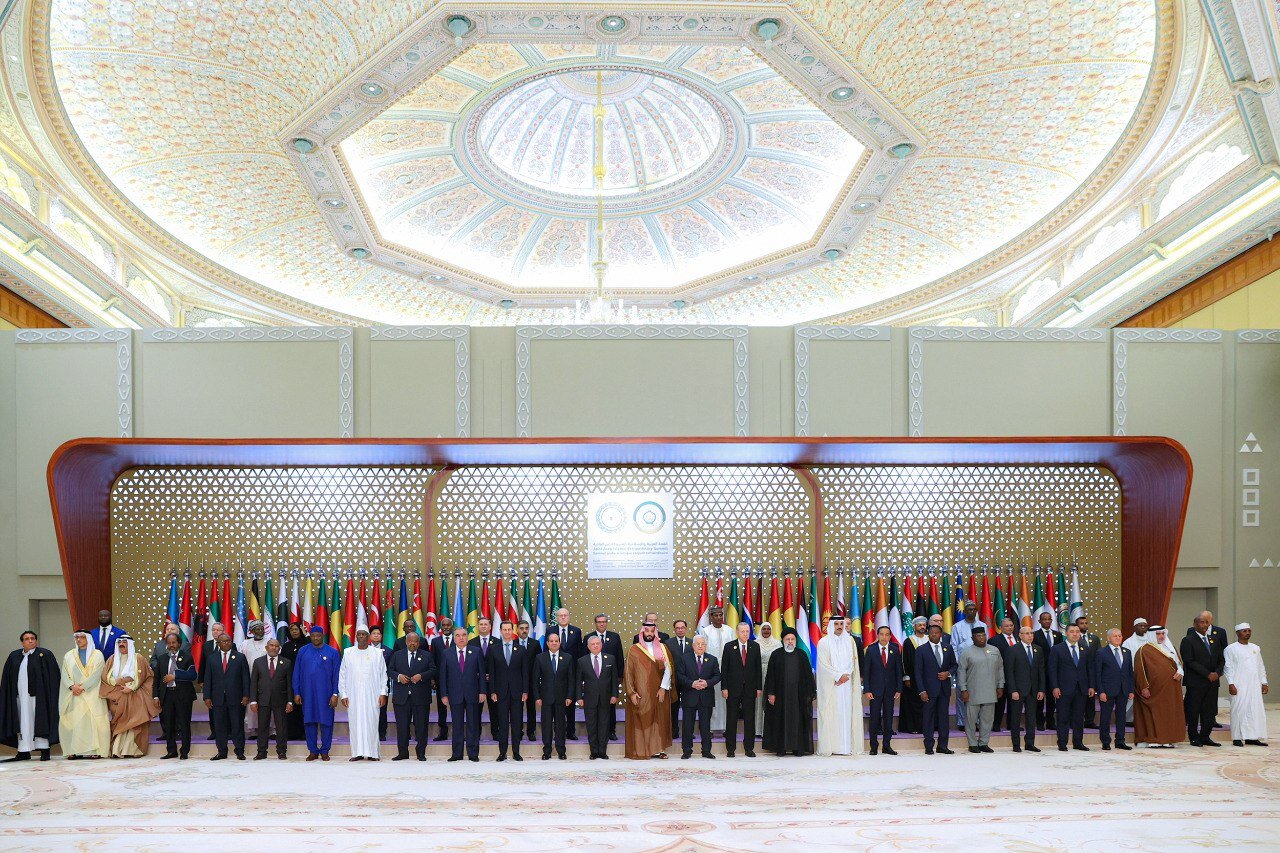Gaza needs concrete actions, not words

TEHRAN – The extraordinary Arab-Islamic Summit in the Saudi capital ended with strong communiqué, but no concrete actions against the Zionist regime or its Western enablers.
After more than a month of relentless bombardment which resulted in the killing of thousands of civilians, the leaders of the Muslim world came together in Riyadh for a summit on the Palestinian question.
The summit, held on Saturday afternoon, was attended by key Muslim leaders such as Iranian President Ebrahim Raisi, Egyptian President Abdel Fattah El-Sisi, Turkish President Recep Tayyip Erdogan, and Saudi Crown Prince Mohammad bin Salman, among other leaders.
Millions of Muslims around the world pinned hope on the summit to produce concrete actions such as boycotting all diplomatic and economic relations with the apartheid Israeli regime for its deliberate targeting of civilian lives and properties.
But the summit failed its constituency.
Before heading to Saudi Arabia, the Iranian president urged action. He called on Muslim and Arab leaders to go beyond declaring positions and adopt punitive measures against the Israeli regime, which has demonstrated a mind-boggling disregard for civilians.
Referring to the Organization of Islamic Cooperation (OIC), President Raisi said, “This platform is not one for mere speech and announcement of positions, but must be a platform for action to quickly stop the bombings, lift the blockade of Gaza, and open the way to help the oppressed and authoritative people of this region, as well as to achieve the rights of the Palestinians, which was basically the main philosophy of the establishment of the Organization of Islamic Cooperation.”
In his speech at the summit, President Raisi reiterated the need for action, saying the high-level meeting was an opportunity to take historic action in defense of the Al-Aqsa Mosque.
He then suggested 10 actionable solutions.
The Joint Arab Islamic Extraordinary Summit adopted a good resolution but it was not enough to put real pressure on the Israeli regime and its Western enablers.
The failure to turn up to the heat on Israel derives from many reasons. One such reason is internal divisions among member states regarding many issues including the ways to help end the Israeli aggression.
The enablers of Israel have long pursued a divide-and-rule strategy toward the Muslim world and fostered discord among key Islamic countries. Unfortunately, some Muslim countries have been engaged in rivalries and self-defeating competitions that were detrimental to all. The good news is that the era of rivalries and divisions is over, with key Muslim countries improving relations with each other.
The issue of Palestine has resurfaced again as a unifying force in the Muslim world. All Muslim countries are sensitive to the Palestinian sufferings and are morally obliged to prioritize it.
The second reason is the narrow-minded, short-term interests that some Muslim countries have in relations with the Israeli regime. As a general rule, Israel can never be a reliable strategic partner for any Arab or Islamic country. This is because Israel is built on racism toward Islamic and Arab identities. Racist anti-Arab and anti-Islamic chants in Israeli demonstrations are regular. In a sense, racism is part and parcel of Zionist identity. Add to racism the never-ending Israeli oppression against the defenseless people of Palestine. With such a regime, no Islamic countries can build a lasting relationship. Even if an Arab or Islamic country harbors a genuine desire to build a lasting relationship with the apartheid Israeli regime, the racist Zionist nature of this regime will prompt it to stab that country in the back when the right moment arrives. At the end of the day, Zionist zealots pursue an expansionist agenda, which has been unfolding on Islamic and Arab lands in the last seven decades.
The third possible reason for the rather tepid resolution of the Riyadh summit could be that some leaders are hoping the behind-the-scene mediations could bring the Israeli regime to reason. If true, that would be wishful thinking as the Zionist regime of Tel Aviv has shown time and again that it only understands the language of power, not suave diplomatic gestures. This regime and its enablers have demonstrated that they lack any moral compass, having slaughtered more than 11,000 civilians. Politics in the West Asia region have always been suffused with human sufferings but only the apartheid regime of Israel was able to break a record in this regard. The Israeli regime will go down in history as one that deliberately targeted baby incubators, killed refugees fleeing war, and forced doctors to perform surgeries without anesthesia before blowing up hospitals.
culled from Tehran Times

